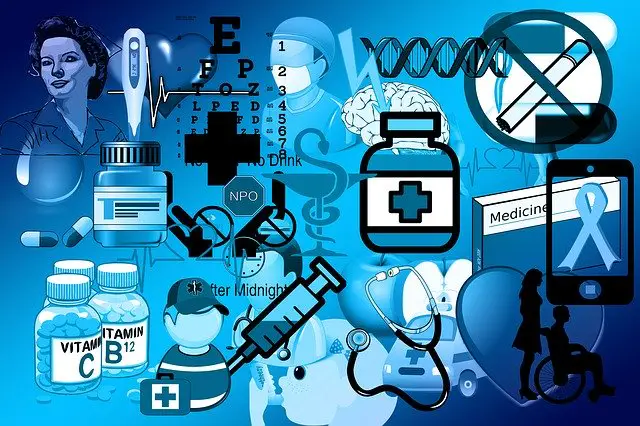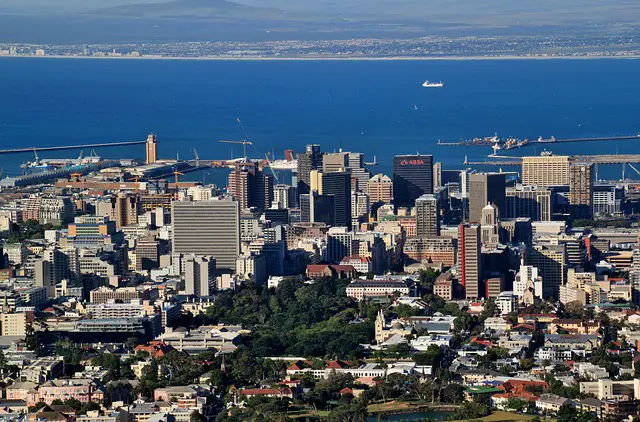This article contains a guide on how to become a medical doctor in South Africa.
It is the joy of every parent when they have a doctor’s child because they are on-demand anywhere in the world. Earning the MBBS degree anywhere in the world is one of the most prestigious and rigorous activities in school to date. I trust that you know that. Little wonder why a few get admission or even conclude the programme. In Sub-Saharan Africa, there are just about 69 medical schools, though the demand for an adequate health care system has been on the lips of many Africans. However, it was discovered that about 50% of science students in college aim at going to medical school, but they are either denied admission or they voluntarily opt for other courses as a result of the rigour that accompanies the six to seven years in medical school. Have you ever asked a medical student or resident doctor about their experience in medical school? It’s just overwhelming; sometimes you might just pity them.

Becoming a medical doctor is quite different from other courses such as social science, engineering, anatomy, accountancy, pharmacy, etc. Apart from the over 6 years spent in medical school, there are a lot of requirements that must be fulfilled, though they are almost unified across the world, like passing the medical exams set by the medical regulatory bodies. However, there are still some peculiarities based on other factors, such as the country and type of medicine. Some include a series of examinations in the course of study, continuous certification to stay relevant and grow in specialised fields, internships, etc. In this article, we will take a close look at how to become a medical doctor in South Africa. But first, a brief look at the country of South Africa
South Africa, a country in Southern Africa, is a complex and dynamic country with a mix of blacks and whites as citizens, though the blacks make up about 75% of the population. South Africa, one of the major economic hubs in Africa, can boast of its education sector, with over 60 public and private institutions distributed within the nine (9) provinces of the country and catering to students within and outside the country. The University of Cape Town, the oldest in the country, is ranked the best institution in Africa. The English language is used as a medium of communication in primary schools, secondary schools, and higher institutions, including medical schools. The health care system in South Africa is on average compared to other developed countries due to its high rates of Malaria, HIV, Maternal mortality, measles, etc. In 2009, for instance, there were about 5.6 million cases of HIV/AIDS. The health care system is structured into three parts.

In South Africa, the public healthcare system is structured at different levels: According to “Sonke Gender Justice,” they include
- Clinics treat common health needs, known as ‘primary health care’. Clinics refer patients to hospitals when they need further treatment. Clinics are run by specially trained primary health care nurses. There are different types of clinics, such as mobile and satellite clinics.
- Community health centres are larger clinics, and they usually have doctors as well as nurses.
- Hospitals are for surgery, emergency treatment, and serious illnesses that cannot be treated at the clinic. Clinics and doctors refer patients to hospitals; individuals can only present themselves without a referral if it is an emergency.
The public health care system in South Africa serves a large portion of the population; however, about 70% of doctors in the country work in the private sector. In 2013, it was revealed that, due to the vast number of citizens living in rural areas, there has been a high demand for qualified doctors and nurses in the country, hence the need for institutions to train and qualify health workers.
Speaking about institutions that train medical students in South Africa, there are medical schools instituted to teach prospective doctors how to respond to ailments and the general well-being of an individual. South Africa offers some of the best medical degrees on the African continent. It is important to note that South African medical schools award a Bachelor of Medicine and Bachelor of Surgery degree (MBChB degree except for the University of the Witwatersrand, which awards an MBBCh degree. The MBChB degree is one of the first professional degrees in medicine and surgery awarded upon graduation from medical school by universities in countries like the United Kingdom, New Zealand, and South Africa. This is unlike other universities in most countries that award Bachelor of Medicine and Bachelor of Surgery, also called MBBS degrees, to their medical students. It takes five years to complete this type of degree.The MBBS is also a professional undergraduate degree, but the focus of the curriculum is to prepare students for a career in medicine. It takes about 4–6 years to complete this type of degree.
Let’s define a medical school
A medical school is a tertiary institution or college in a tertiary institution where medicine and other related subjects are studied and degrees are awarded to physicians and surgeons.
There are a handful of medical schools in South Africa that are fully accredited by the South African Department of Education and the Council on Higher Education, and they are ranked among the best universities in the world. Some include
- The University of Cape Town, the 110th Best University for Clinical Medicine
- The University of Witwatersrand is the 132nd Best University for Clinical Medicine
- The University of KwaZulu Natal, 244th Best University for Clinical Medicine
- Stellenbosch University, 246th Best University for Clinical Medicine
- NorthWest University, South Africa, 351st Best University for Clinical Medicine
- The University of Pretoria, South Africa, is the 491st Best University for Clinical Medicine
- Sefako Makgatho Health Sciences University
- University of the Free State
- University of Limpopo
- Walter Sisulu University
- University of Johannesburg
- University of Western Cape
- Nelson Mandela University
It is important to note that in the school of medicine in South Africa, there are other courses that are undertaken, such as philosophy and ethics of mental health, clinical medical practise, pharmacology, anatomy, physiology, physiotherapy, and postgraduate courses for Master and Doctoral levels.
STEPS ON HOW TO BECOME A MEDICAL DOCTOR IN SOUTH AFRICA
Lets us look at the steps to becoming a Medical Doctor in South Africa
Step One: Get Admitted into Medical School
In South Africa, the education sector is regulated by two national departments: the Department of Basic Education (DBE), responsible for primary and secondary schools, and the Department of Higher Education and Training (DHET), responsible for tertiary education and vocational training. The structure of the formal education and training system constitutes two years for pre-primary, seven years for primary education, four years for junior secondary education, and two years for senior secondary education.
As a prospective student, you must have physics, chemistry, and biology with minimum requirements. However, each of the universities has a peculiar requirement. Admission to study medicine in any part of the world is very competitive, so before you are admitted into the university to study medicine in South Africa, you must have an excellent academic result in high school and the National Benchmark Tests (NBT). NBT is a test taken by many South African universities to gauge student’s readiness for the university. Do not forget that other nonacademic metrics are also counted: leadership, sports, work experience within the healthcare profession, and social awareness. Upon admission, you would need to complete 5 years studying medicine and surgery at any of the universities in order to bag the MBChB degree. In South Africa, health care practitioners have respective boards for specific professions. They are together regulated by the Health Professional Council of South Africa (HPCSA).
Step Two: Complete Clinical Internship
As stated above, medical school in South Africa is for at least 5 years. Prospective students would have to enrol in and complete a two-year internship programme at a Health Professions Council of South Africa (HPCSA) accredited training facility. In this phase, it is expected that your skills learned at the university will be applied and further developed in various areas of medicine. Interns work with consultants who supervise and serve as mentors and guides, other medical staff, take part in a clinical rotation, and other medical areas. Medical interns can consider what area of specialisation to focus on in this phase. In other countries, it is called residency. Here, the doctors perform a variety of extensive duties, such as conducting physical exams, taking patient histories, attending conferences, and interpreting lab information. Upon completion of the internship, interns are assessed in both written and oral examinations by the HPCSA. According to its website, HPCSA, “in conjunction with its 12 professional boards, is committed to promoting the health of the population, determining standards of professional education and training, and setting and maintaining excellent standards of ethical and professional practise.”. It is after this step that interns are legally and ethically permitted to be called medical doctors.
Step Three: Community Service
Medical doctors must complete a year of community service to register with the Health Professions Council and practise as doctors in the country. This is a compulsory programme, as doctors would work with public health facilities in rural and underserved areas across the country. Other health practitioners, such as nurses and pharmacists, also take part in this service. Community service is an opportunity for professional and personal development.
Step Four: Full-Time Practise and professional development
After completion of community service, doctors are licenced and can work in any medical health care centre, including academic hospitals, specialised hospitals, federal or regional hospitals, etc., based on their discretion. They are also advised to take professional courses as they grow in their careers. All doctors are obliged to undertake continuous medical professional development during their careers. There are also post-graduate degrees in the medical field in South African institutions.
Medical school anywhere in South Africa is very rigorous, but the result is certainly worth the effort. However, it would take not just a passionate person to stay true, but a resilient spirit who is ready to stay true irrespective of the odds. In fact, there are a plethora of courses that you can take in medical school, apart from earning an MBBS or MBChB. Good luck!






